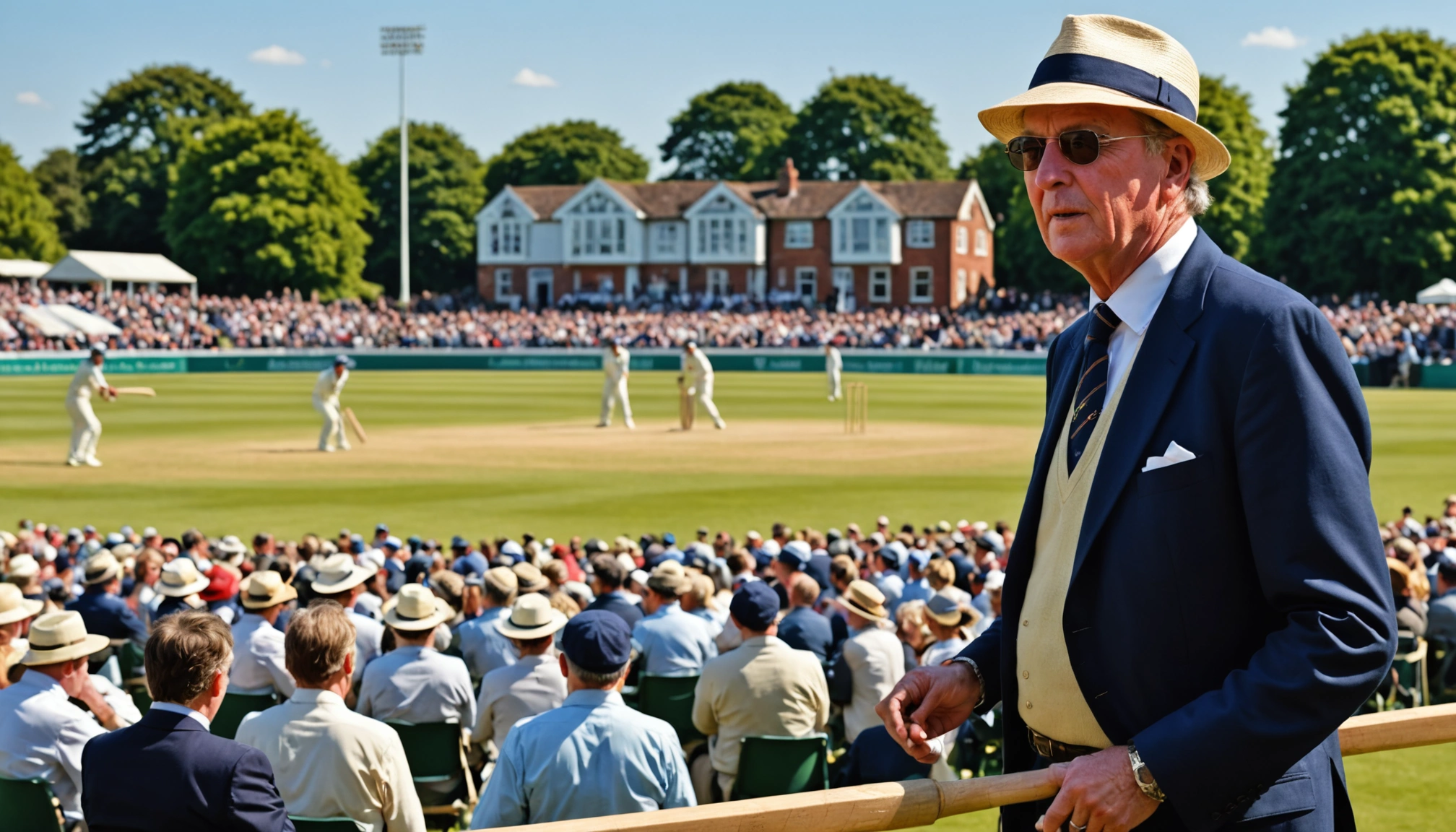Dickie Bird: Cricket Legend Without A Run For England
Discover the remarkable legacy of Dickie Bird, cricket's beloved umpire and Yorkshire icon who became a national treasure without playing for England.

By Editorial
Dickie Bird's early life and sporting roots
Born Harold Dennis Bird on 19 April 1933 in Barnsley, Yorkshire, Dickie Bird’s journey into cricket began humbly. The son of a miner, Bird grew up in a working-class environment where sport was a cherished escape. While he showed promise as a footballer, even playing for Barnsley's youth team, it was cricket that captured his heart from an early age.
At Barnsley Cricket Club, Bird's contemporaries included future luminaries like Sir Michael Parkinson and Sir Geoffrey Boycott. Bird and Parkinson often opened the batting together years before Boycott would rise to international fame. This tight-knit group of lifelong friends would each carve out remarkable careers in their respective fields.
Playing career highlights and challenges
Bird’s professional cricket career began with Yorkshire's second XI, and after three years, he broke into the first team in 1956. He shared the dressing room with legends such as Fred Trueman and Raymond Illingworth during a golden era for Yorkshire cricket. Bird’s highest first-class score, an unbeaten 181 against Glamorgan in 1959, came during a season when Yorkshire clinched the County Championship, marking the start of a decade dominated by the White Rose county.
However, Bird’s playing opportunities at Yorkshire were limited. He moved to Leicestershire in 1960, where he played 79 first-class matches compared to 14 for Yorkshire. Despite his dedication, Bird’s batting average remained modest, just under 20, and his top-level playing career concluded in 1964. While he never donned the England jersey as a player, his cricketing journey was far from over.
The rise of a legendary umpire
Bird’s true claim to cricketing immortality came from his umpiring career, which began in 1970. His first Test match as an umpire was at Headingley in 1973, where England hosted New Zealand. Bird quickly became known for his approachable demeanour and close rapport with players and fans alike, despite occasionally appearing nervous on the field.
That same year, the Lord’s Test against the West Indies was interrupted by a bomb threat, forcing a lengthy pause in play. Bird’s calm presence, sitting on the pitch covers amid spectators, encapsulated his unique connection with the cricketing public. His good humour and resilience in unpredictable situations endeared him further to fans.
Memorable umpiring moments and anecdotes
Throughout his umpiring tenure, Bird was involved in numerous iconic moments. In 1988 at Headingley, during a match against the West Indies, play was halted due to water seeping onto the outfield from a burst pipe. Annoyed Yorkshire fans vented their frustration, prompting Bird to quip, “I can’t help it if there’s a burst pipe. There’s water coming up. It’s not my fault.”
In 1995, again facing the West Indies at Old Trafford, Bird led players off the field because the sun’s glare was causing distractions. His humorous shout towards the posh stands, “There’s something shining inside your box,” highlighted his ability to handle tension with wit.
Bird’s reputation was such that he stood in the first three Cricket World Cup finals held at Lord’s in 1975, 1979, and 1983. The 1975 final between West Indies and Australia ended with a memorable pitch invasion by fans who spirited away Bird’s trademark white hat. Years later, Bird recounted spotting a London bus conductor wearing it, who cheekily admitted to the theft.
Enduring respect from players and fans
Despite his reluctance to give LBW decisions, Bird was beloved by players. He was the subject of many pranks, including a famous one involving former England batsman Allan Lamb. Bird once claimed Lamb forgot his bulky mobile phone at the crease, which rang unexpectedly. On the line was Ian Botham, who urged Lamb to play some shots or get out – a story that highlighted Bird’s good humour and connection with players.
When Bird retired from international umpiring in 1996, he held the world record for officiating in 66 Test matches. His final Test at Lord’s was marked by a guard of honour from England and India players, a testament to his immense respect within the cricket community. Even with tears, Bird gave a marginal LBW against England captain Michael Atherton in the opening over, symbolising his commitment to fairness.
Legacy, honours and lasting impact on cricket
Beyond the field, Bird’s celebrity endured through bestselling books and popular speaking engagements. Awarded an MBE in 1986 and an OBE in 2012, he also shared a unique friendship with Queen Elizabeth II, meeting her 29 times and exchanging letters.
Bird’s love for cricket was lifelong. He funded a balcony at Headingley for players to relax and watch games, with both the balcony and a ground clock bearing his name. A statue erected in Barnsley in 2009 immortalises his legacy, despite some cheeky local antics involving the statue’s raised umpiring finger.
Bird never married, famously saying he was married to cricket. Reflecting on his life, he remarked that while he missed having a family, he saw the strains cricket placed on relationships and chose a different path.
Why Dickie Bird remains a cricket icon
Dickie Bird’s story is one of passion, resilience, and deep connection to the sport and community. Though he never scored a run for England, his impact on cricket is immeasurable. His warmth and integrity transcended the boundary rope, making him one of British sport’s most cherished figures.
For those interested in cricket’s rich history and personalities who shaped the game beyond runs and wickets, Bird’s life offers inspiration. His legacy continues to influence umpiring standards and cricket culture today.
To explore more on current cricket highlights and key performances, check out our recent coverage of the Caribbean Premier League 2024 latest highlights and key performances. For insights into rising talents who could feature on England’s World Cup squad, see our article on Elliot Andersons rise a strong case for England’s World Cup squad.
Related topics
Editorial
Sports expert at SportsScoop
Specialist in sports analysis and journalism
Related articles
Want to read more?
Explore our comprehensive collection of sports articles and analysis, or contact us for more information.



